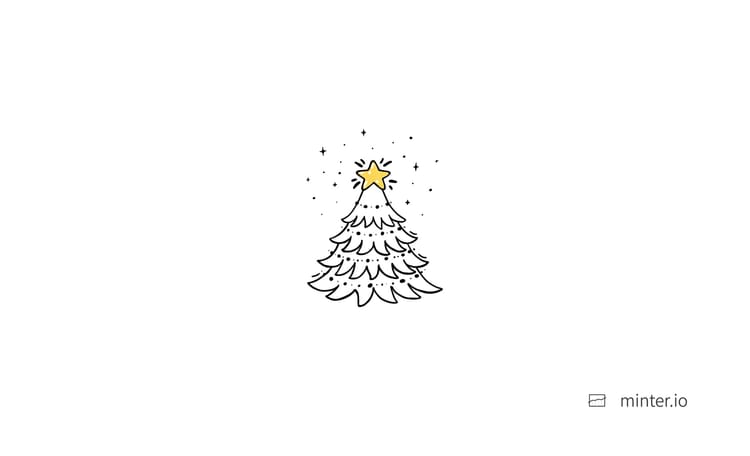What You Can Learn From KitKat’s Latest Hashtag Campaign
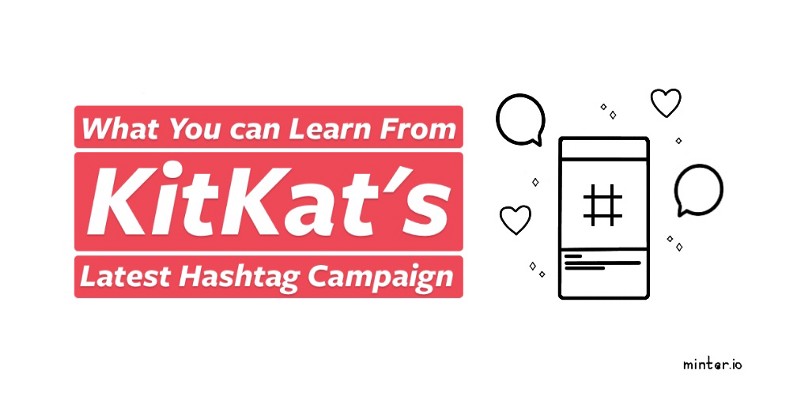
With a mildly ominous undertone, on the 19th of February 2019 KitKat’s official main Instagram page posted up this:
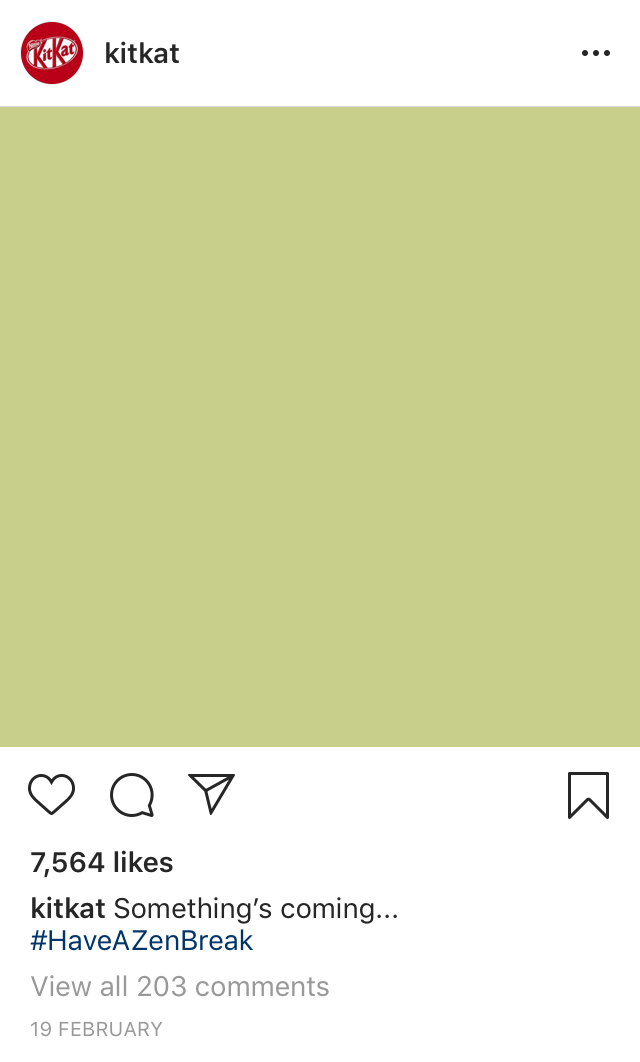
This was the first time the main KitKat page introduced the hashtag #HaveAZenBreak which the delighted chocolate biscuit fanatics would find out was the launch of KitKat’s matcha green tea biscuit.
Upon looking through the hashtag on instagram, @kitkat.nl had posted the same thing on February 16th 2019. I decided this was an opportunity to learn from an established company, what exactly was it that makes a great hashtag campaign, so I took to Minter.io to track the campaign.
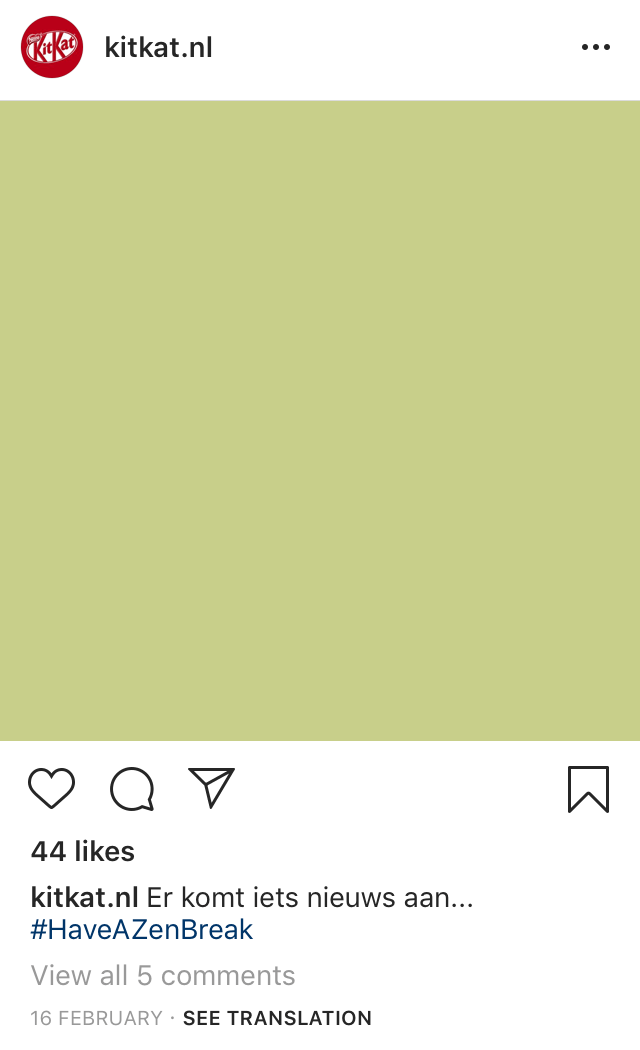
On April the 22nd 2019 there were 121 posts with the hashtag #HaveAZenBreak, only 6 of which were from the main KitKat page. Some of the other posts have come from other branches of the KitKat company like @kitkat_japan_official.
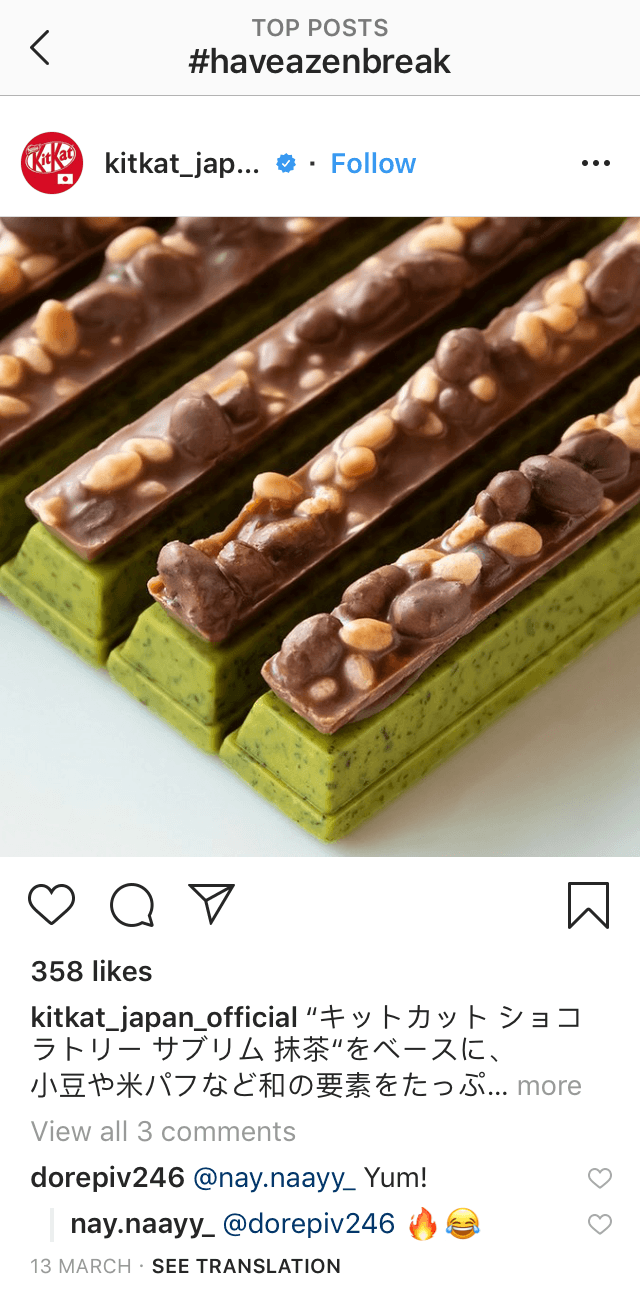
Some posts featuring the hashtag have come from public figures/influencers like @sobo_cosplay who has 41.2K followers.
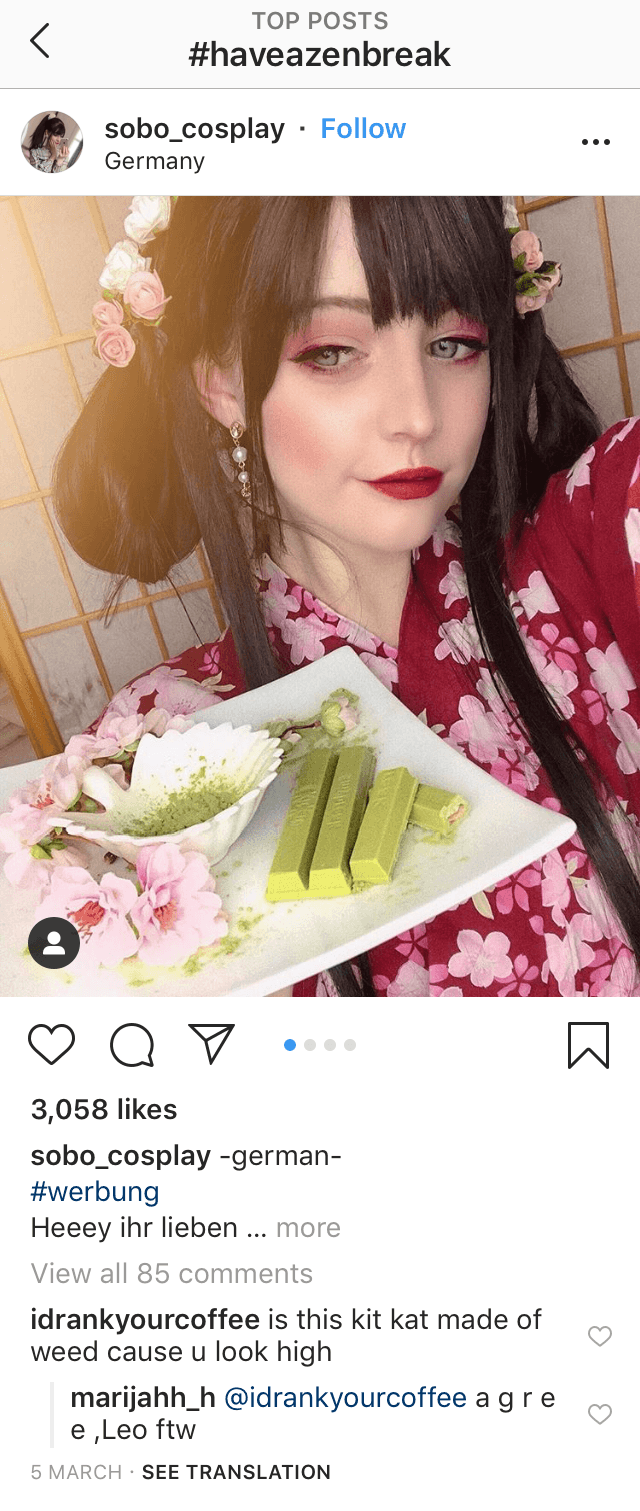
Other posts have been user-generated, building a buzz around the new product. Much like the example below from @7254sa, hashtag campaigns are incredibly powerful for getting your consumers to shout about your products.
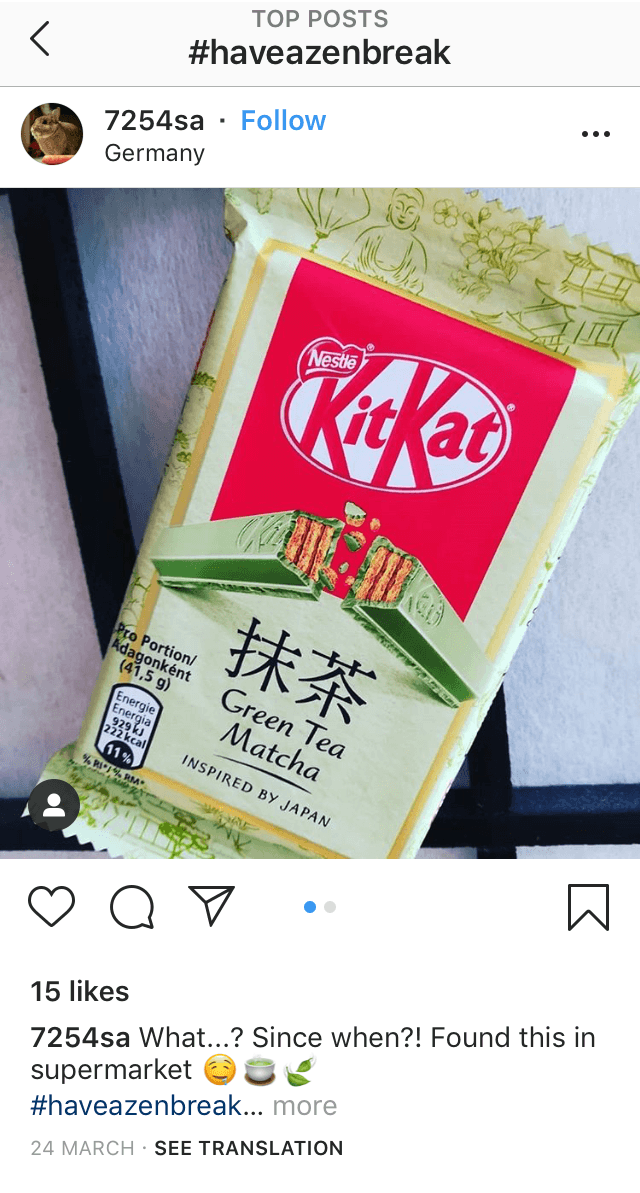
So, having been tracking the campaign for 7 weeks now, what can we see about what is working and what isn’t using the data from the hashtag tracker on Minter.io?
Let’s look at content first.
The number of posts are increasing, with a large spike coming into April.
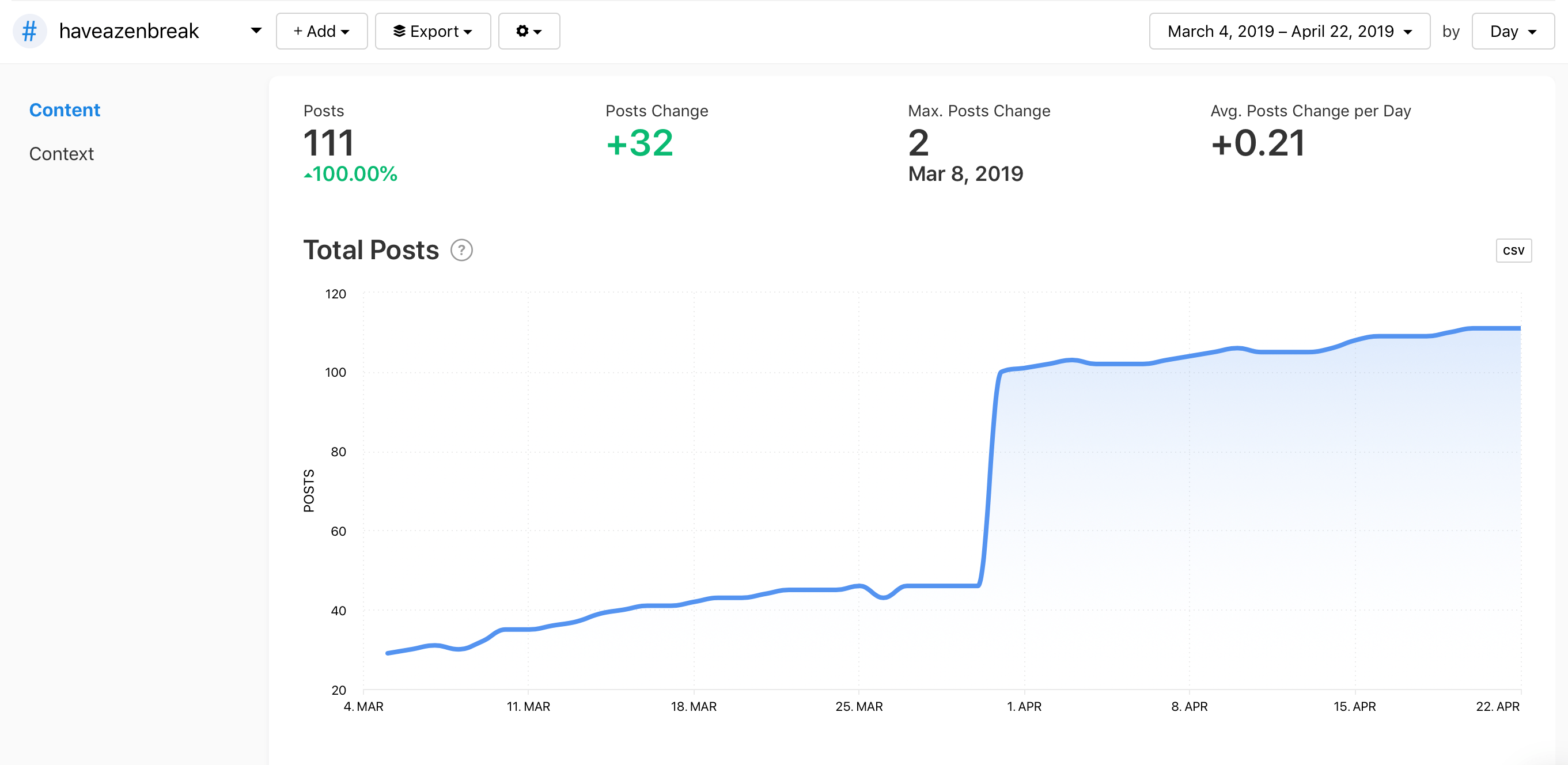
Most of the posts are photos and most of the interactions are with photo content.
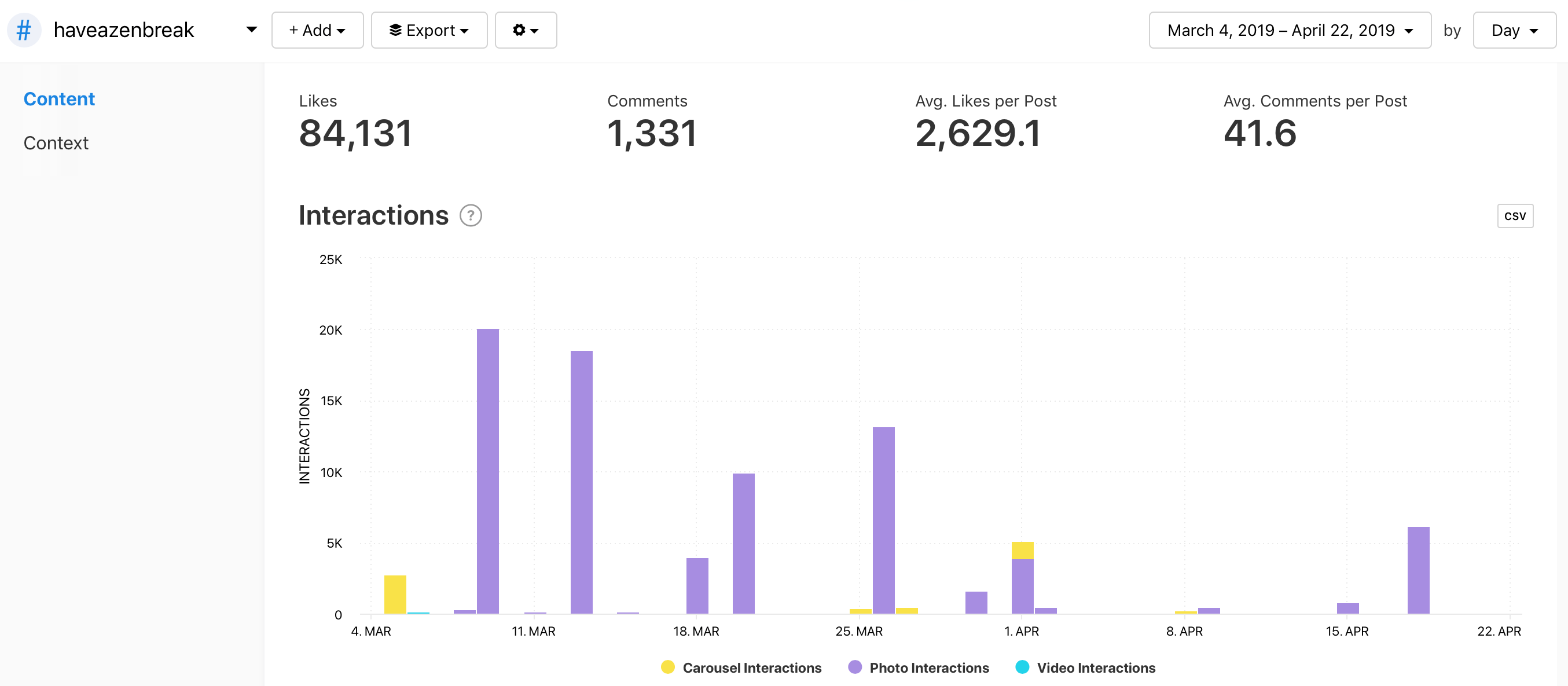
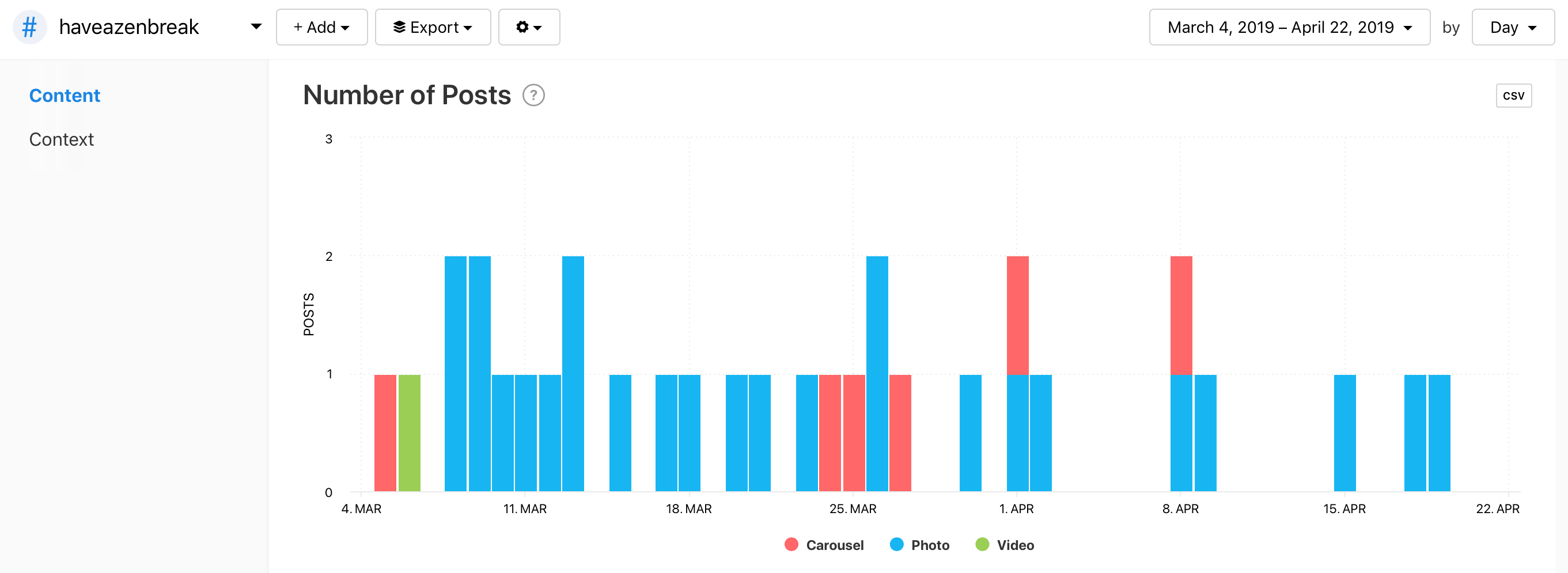
The post sentiment rate has remained mostly positive, with only a few blips into a negative percentage. As KitKat’s product is a food product this may be down to taste, but the overwhelming trend is that users are saying positive things about the hashtag.
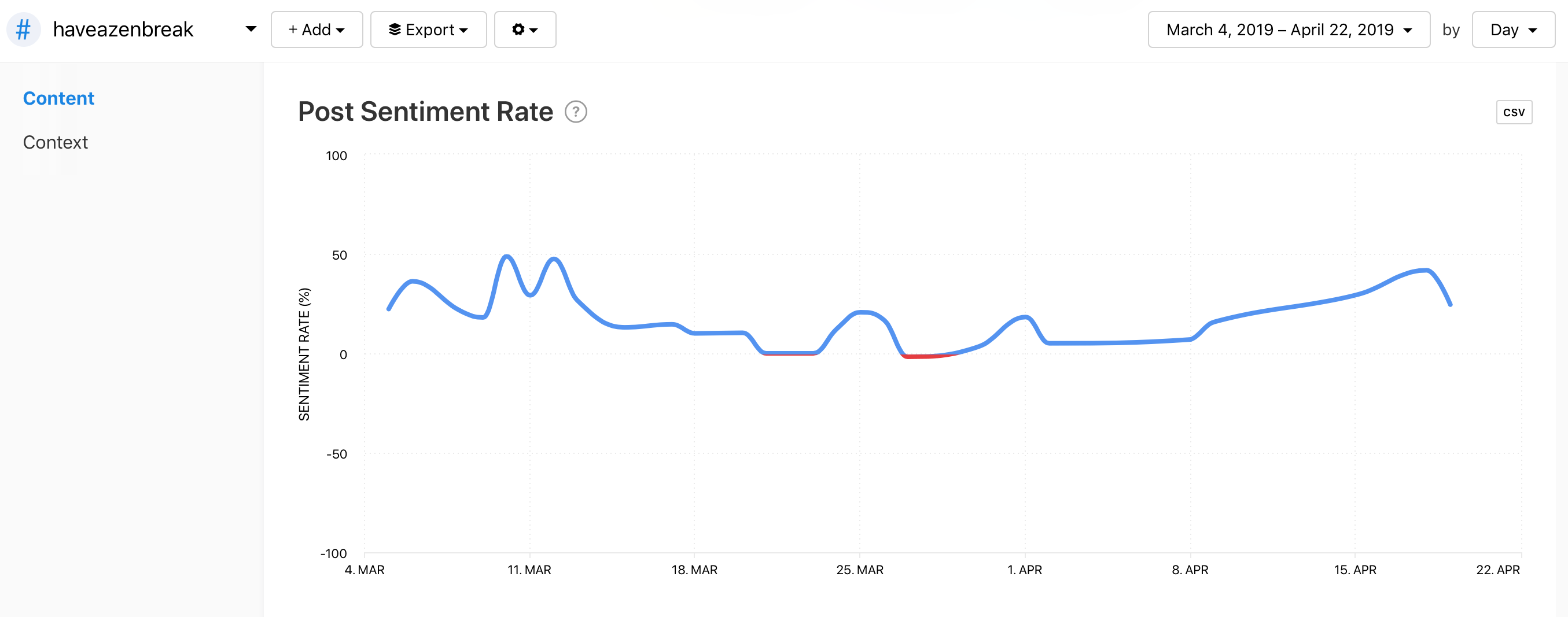
A large amount of top posts (by interactions) feature people in them. They also tend to feature the product outside of the wrapper. As we look further down the top posts, there are cakes featuring the product and the product in its wrapper.

Now let’s check out the hashtag’s context
All the associated hashtags are relevant to the brand and the product, meaning this hashtag is unique and recognisable. We can also see that the associated hashtags are positive e.g. #matchalover and that the Japanese market has specifically taken to the product.
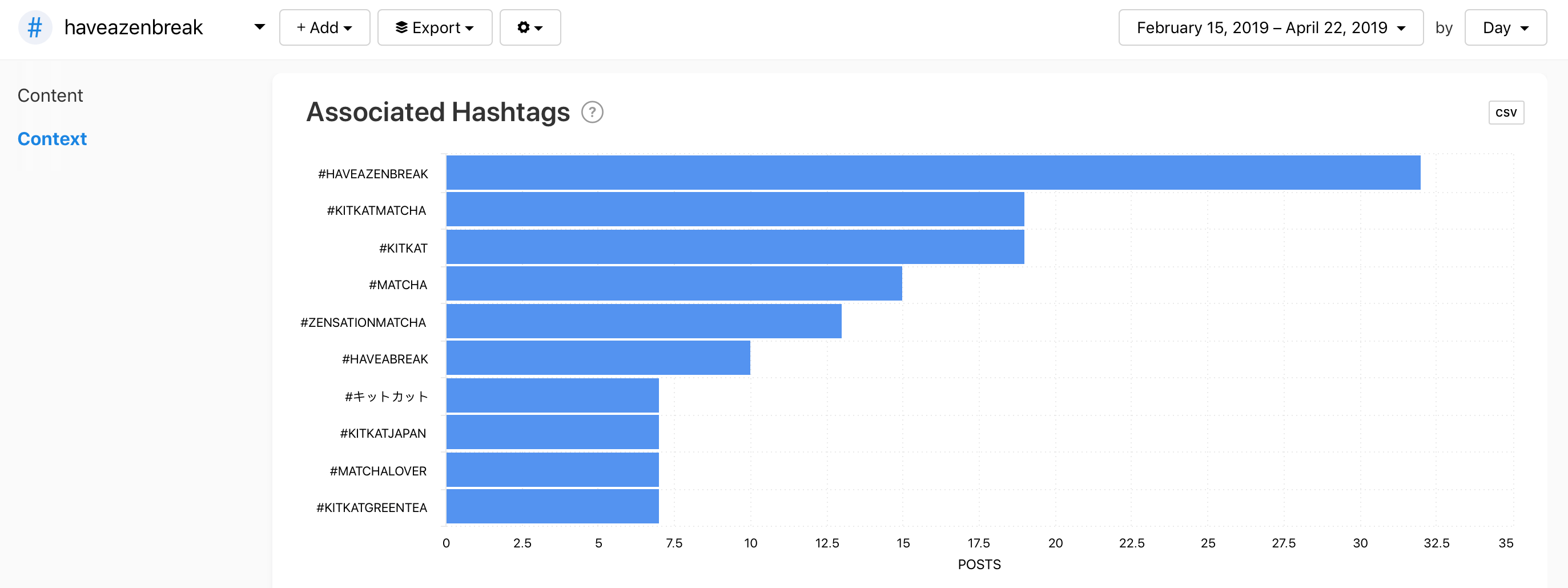
Users are using the hashtag mainly with only 2 or 3 other hashtags. Again this is a good indicator of the unique nature of the hashtag.
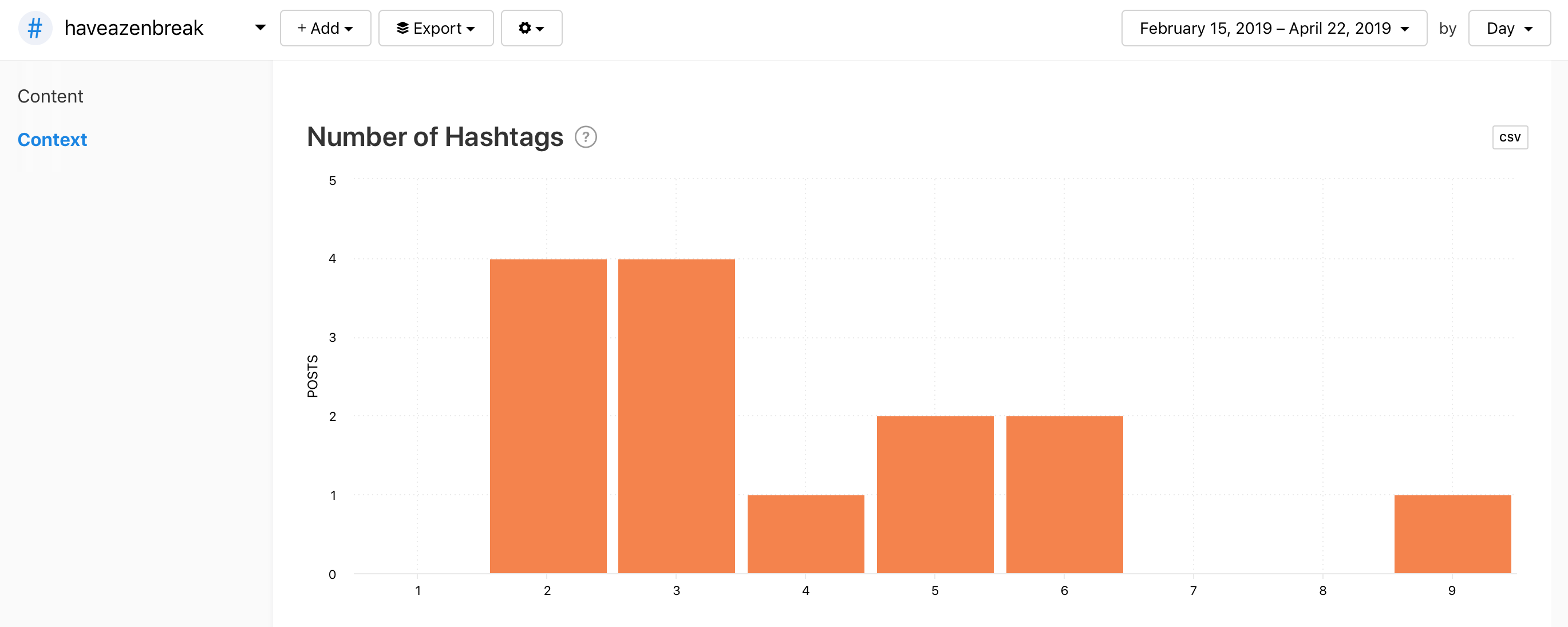
Tracking a hashtag is just as important as creating the hashtag itself. If you don’t know how well it is performing, or what people are saying and feeling about your product or services, you really are missing a trick. Learn how to track your own hashtag campaign effectively here and check out Minter.io for even more metrics tracking.

